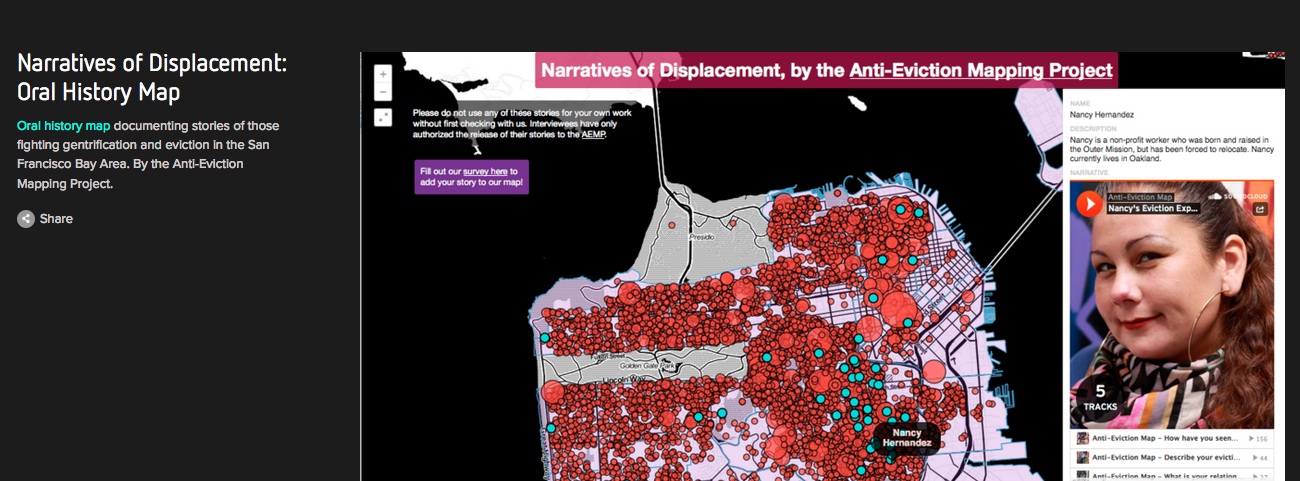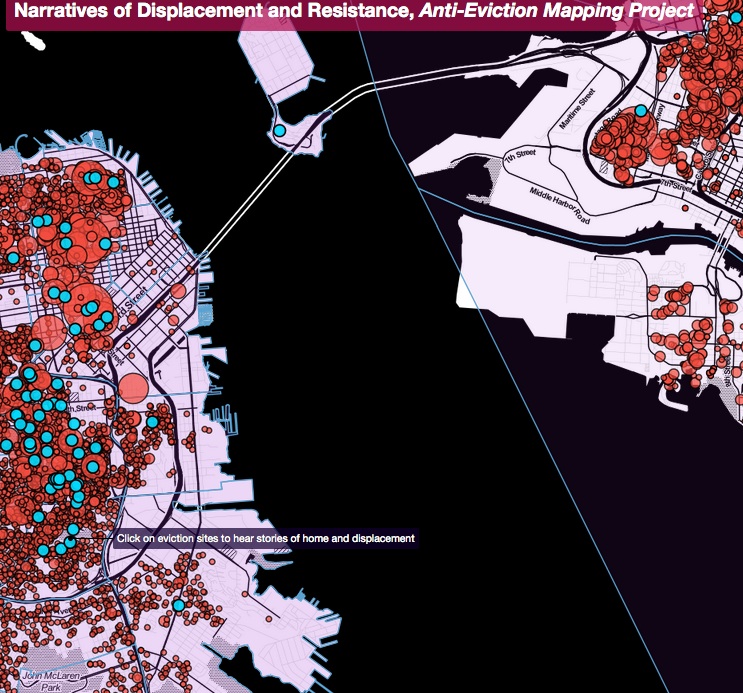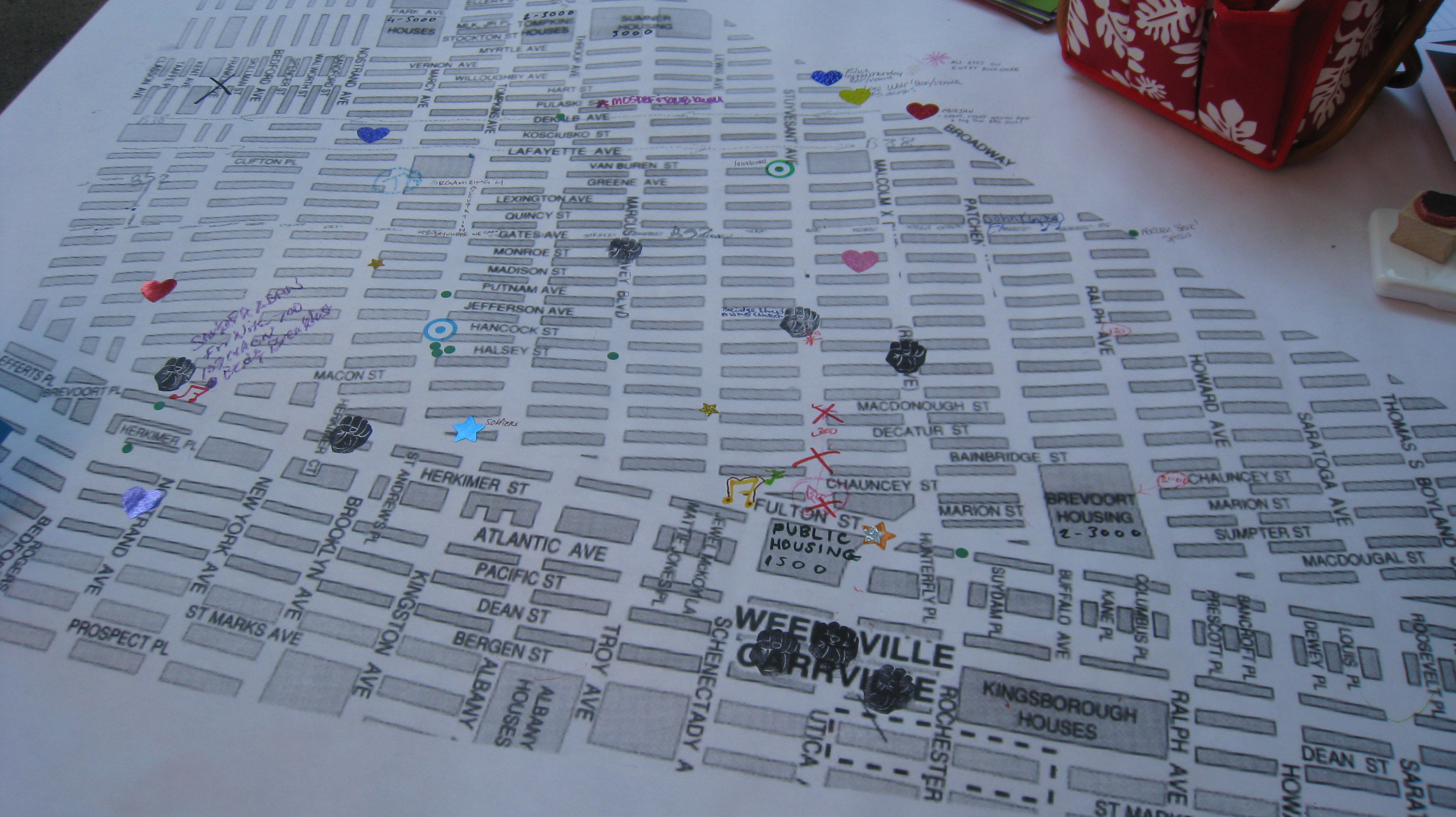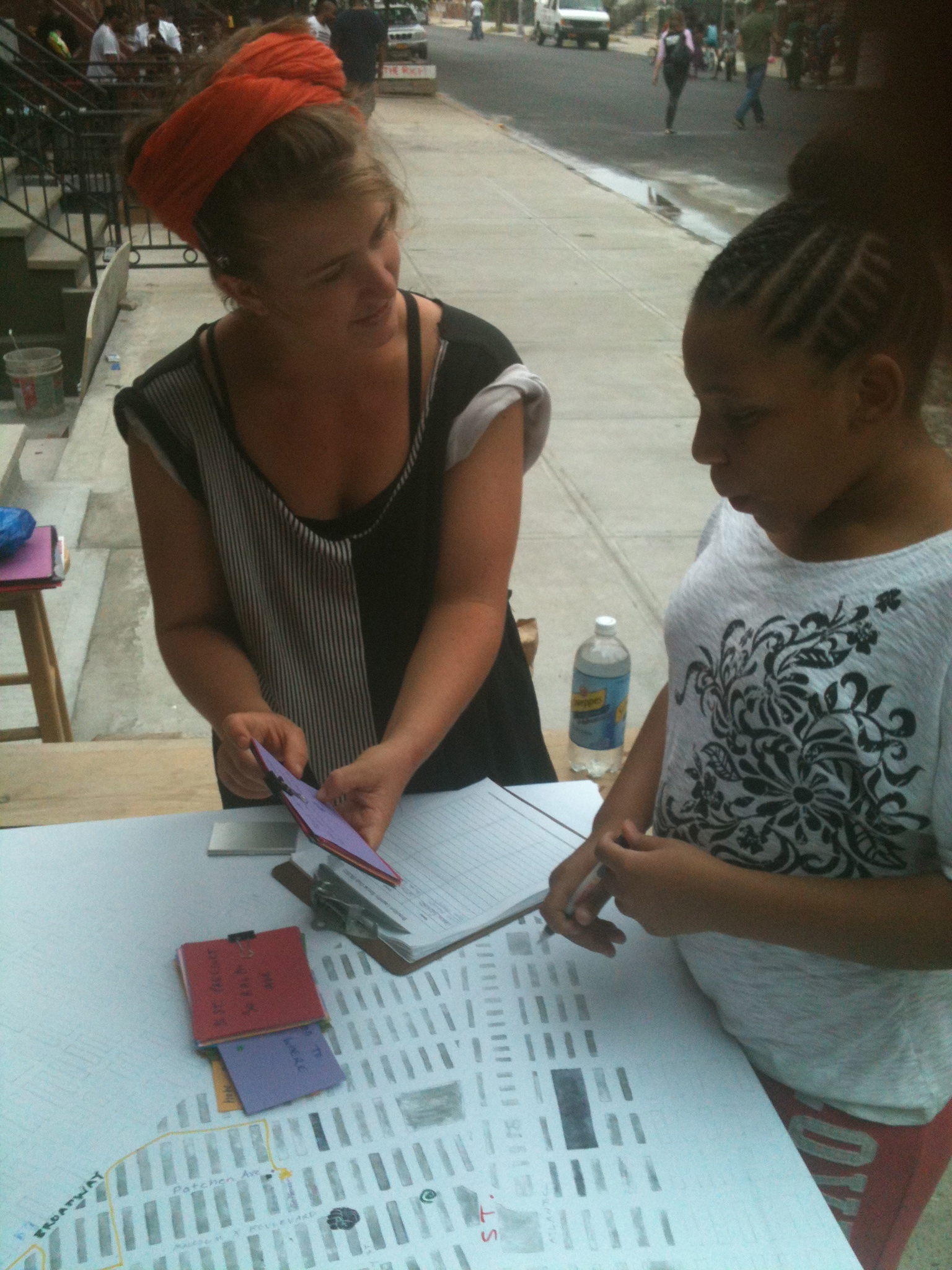Oral History and Counter-Mapping as Methods towards Anti-Gentrification and Anti-Displacement: A Conversation with the Anti-Eviction Mapping Project and Brooklyn Laundry Social Club
Wednesday April 13, 2016
6-8PM
Room 6112, Sociology lounge
How can methods of storytelling, oral history and mapping work together to counter gentrification and displacement and bolster social movements- or not? What does this work do? In this event Manissa Maharawal from the Anti-Eviction Mapping Project and Mary Taylor from Brooklyn Laundry Social Club will think about how narrative and mapping based methods of co-research can (or cannot) change and effect processes of displacement, gentrification and eviction. We imagine this event as a conversation about co-research and movement building with presenters and the audience.
The Anti-Eviction Mapping Project:
In San Francisco, cranes litter the horizon, neighborhoods have quickly become more expensive, longtime residents are rapidly displaced and the city has gained international attention for skyrocketing rents, and exponentially growing income inequality. The Anti-Eviction Mapping Project’s “Narratives of Displacement and Resistance Oral History Project” aims to document these changes in San Francisco by foregrounding the stories of people who have been, who are being, or who were being, displaced. Through collecting oral histories the project creates a living archive of people and places, documenting deep and detailed neighborhood and personal histories. In doing so the project creates a counter-narrative to more dominant archives that elide detail and attention to legacy, culture, and loss in the city. Our map lives online to be interacted with by the public, but also offline in physical spaces including our current zine project and our narrative mural in Clarion Alley. While we are interested in stories of dispossession, we are not interested in reducing people to their evictions, and thus instead focus on the intimacies of personal relationships to shifts in spatiality as processes of gentrification unevenly unfold. We recognize that displacement transpires in kaleidoscopic forms, and that loss is corporeal, cultural, haunting, and real. In this talk Manissa Maharawal the co-director of the Narratives of Displacement Project will discuss how the project was formulated, evolved and changed and the ways in which the project uses practices of radical mapping to engage the public.


Brooklyn Laundry Social Club:
In 2012 Brooklyn Laundry Social Club (BLSC) set out to organize events in laundromats in Bedford Stuyvesant, Brooklyn, to address topics of local concern, especially changes in the neighborhood related to rising property values, foreclosure, and displacement. Envisioning ourselves as a mobile community center, we wanted our events and methods to emerge from concerns, desires and skills of neighbors. Our goal was to transform the nascent community in laundromats into an active one by engaging in collective projects that build neighborly relationships, embodied sympathy, and critical alliance. We believe that making things together and doing research as equals can produce new dynamics and knowledge. Along with interviews, oral histories and blogging, our mapping game has been a key method of research and collaboration. It is our hope that the knowledge we co-produce will contribute to our collective ability to direct the future of the neighborhood.


This event is sponsored by the Center for Place, Culture and Politics. It is free and open to the public.


